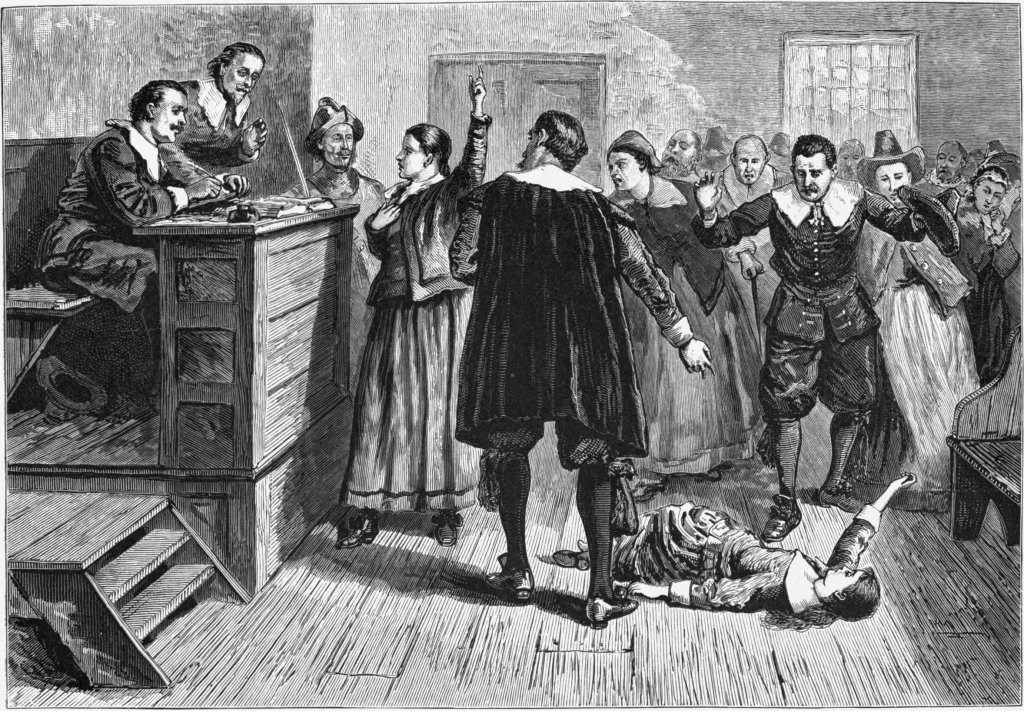When Language Can Be Deadly: Salem Witch Trials & Other Horrible Historical Linguistic Happenings
We’re all familiar with the hilarious consequences of language gone wrong, whether its autocorrect fails, internet mistakes that set grammar Nazis on the rampage or horrible translations resulting in some very funny signs, cooking instructions and misunderstandings. But it’s not always fun and games when grammar goes wrong: language is a powerful thing which can have some deadly side effects.
History is littered with various horrible linguistic happenings, where language, and its misuse, has decided the fate of individuals, cities and countries.
The Salem Witch Trials
Take for example the Salem Witch Trials. Around 150 people were hanged in 1692 in Salem, Massachusetts after a (literal) witch-hunt. One positive thing to come from this dark patch in history was the great record of documents it left behind, chronicling the trials, an important legacy given that the Puritans had, in general, left very few written records. This has given scholars the perfect opportunity to study literacy in this era, and its authority.
The transcripts of the Salem Witch Trials have been important in showing the development of the English language in America. These documents are particularly interesting because of their muddled syntax and spelling, as they were essentially transcripts of interviews, bringing together a range voices and backgrounds. Adding to this jumble, the scribes themselves also came from a mix of backgrounds and education levels. Scholars studying these transcripts uncovered some rather grim patterns, as multiple witnesses were recorded as condemning a “witch” using the same sentence: “I (verily) beleue in my heart that X is a (most dreadfull) wicth/wizard.” A coincidence? Not likely given the mixed bag of witnesses. Even worse, some records indicated that this statement was added on at later stage by a scribe, adding weight to a case against the accused.
A person’s fate lay in the hands of the scribe writing down witness accounts, at a time where literacy was fairly primitive. If you were unlucky enough to have a scribe merely copy a common statement to condemn a witch, bad luck to you. This illustrates the tremendous power of the written word, and thus the power of the literate to be the judge of life and death.
Deadly Linguistic Interpretations
Of course, that certainly isn’t the only example of the deadly power of language. There are numerous cases where mistranslations have changed the course of history, and not for the better.
Surely one of the most shocking was the word that dropped the atomic bomb. Towards the end of the Second World War, the Allies issued an ultimatum to Japan, demanding surrender or face destruction. When Japanese Premier Kantaro Suzuki issued a statement, he used the word “mokusatsu,” carrying the connotation both of “no comment” and “we’re ignoring it in contempt.” You can guess which version was relayed to the Americans. A mere 10 days later, they dropped the atom bomb on Hiroshima, followed by Nagasaki.
Medical Mistranslations
Table of Contents
Photo by Bart/Flickr
Disastrous mistranslations are not a thing of the past, even with more people learning languages than ever, and sophisticated translation software and apps. One area that is particularly affected by language fails is the medical profession.
Prescriptions are a particularly tricky business, especially given the cosmopolitan and multilingual nature of the societies we live in. In New York City, for example, since 2009 it is a legal requirement that pharmacies offer translations of medication labels in six of the most widely spoken languages. A study to check whether this was happening found that not only did a quarter of the pharmacies not offer these translations, the ones that did, did so disastrously, with most relying on computer translations. A mere 3 percent used professional translators.
The result? Dangerous mistranslations. One example was a man taking his blood pressure medication 11 times a day instead of the required once a day because of a confusion between “once” in English and “once” in Spanish, meaning “11”. Other prescriptions were rendered nonsensical and confusing.
Sticking with the medical profession, an even deadlier mistake was the poor Hispanic gentleman who collapsed in the ER, telling the staff he was “intoxicado”, meaning nauseas. Of course, the translator mistook this for “intoxicated” and he was treated for alcohol and drug overdose, without an examination to accurately determine the real cause: a blood clot in the man’s brain. The result? Quadriplegia and a big lawsuit.
Serious Syntax Slips
Words are a powerful thing, and translating is a tricky business. Make sure you don’t end up making a serious blunder, alá Jimmy Carter, whose bad pick of translators on his visit to Poland resulted in terrible translations like “I desire the Poles carnally”. Not a good way to kick off a diplomatic visit.
So the next time you use language flippantly remember its power, especially on social media. A recent horrible, but luckily not deadly, example is the guy who tweeted about getting ready to “destroy America”, common British slang for partying hard. When he arrived in the US, all set to party, the authorities were less than impressed with his tweet, and after detaining him for hours, sent him swiftly back to the UK.
Avoid losing face in the future, or worse, causing actual harm, by committing a linguistic faux pas. Contact us for a language course near you, and learn the intricacies of another language – properly!




